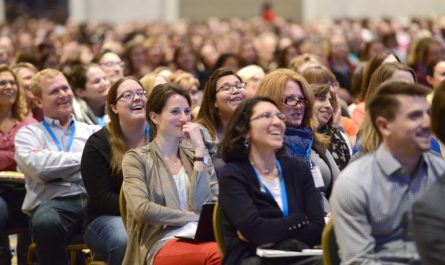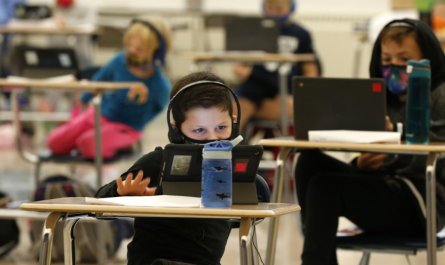Human connection powers brand trust and success. Consumers want to be seen and heard, not by an abstract entity who wants their money, but by other humans who care about their needs. So, for your brand to excel in the vast sea of global competitors, you must establish consumer closeness and make your business more consumer-centric.
Kerryn Grunwald, Head of Insight and Analytics at Reckitt Hygiene U.K., shared RB’s successful four-streamed journey to boost consumer closeness at the 2021 QUAL360 Conference by Merlien Institute.
According to the Kerryn, the trigger for this journey was a staggering discovery from within. In June 2020, RB’s annual employee survey revealed that only 58% of employees felt ‘Reckitt listens to consumers to serve better and enhance their lives.’ This percentage fell short of the global average by 23%.
The underlying truth behind this poor rating was that employees felt disconnected from the consumers they were supposedly serving. Besides, it’s difficult to serve well if you don’t know what people want you to do for them. So they decided to “A.C.T.” based on the company compass.
A- Acknowledge where they were: disconnected from consumers.
C- Collaborate on where they want to go: RB sent out a call to action to their employees, asking them to volunteer as ‘Consumer Heros’ to champion solutions to this problem. By and large, fourteen volunteers across different sections stepped forward.
T- Take one step forward: obtain the resources necessary to gain knowledge of consumers. Then, make decisions to put consumers and people first by always striving to do the right thing.
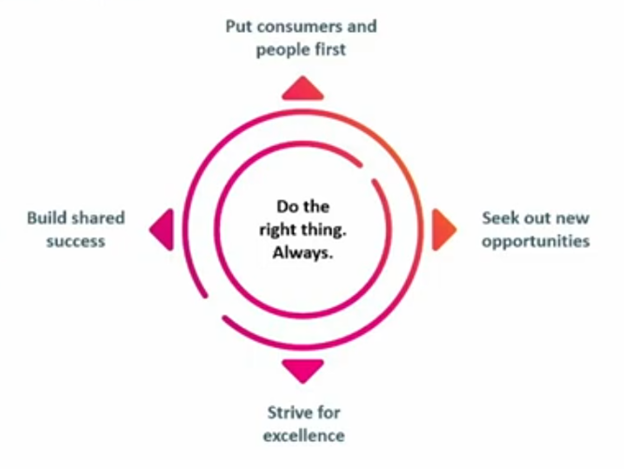
Fig 1: Reckitt Brand Compass
THE FOUR-STREAM JOURNEY TO GREATER CONSUMER CONNECTION
Kerryn, her associate, and the 14 Consumer heroes brainstormed hard. The team identified four core workstreams to be developed for greater consumer connection:
- Consumer Listening Team
- Cross-departmental Culture Change to institute the ‘consumer is King’ mindset.
- Consumer Community
- Lighthouse: an initiative to prepare for 2022
The Consumer Listening Team
In making your business more consumer-centric and boosting consumer connection, before all else, you must listen. And Reckitt hygiene went all out. Kerryn and her team decided to do three things:
- Consumer Relations Call Listening: firstly, the team would join their colleagues in call centres to listen to and understand the challenges and experiences of the everyday consumer.
- Consumer Relations Data Access: secondly, they transformed big data from consumer complaints and inquiries into a real-time knowledge base. Using Power B.I. (an innovative data visualization tool) this data, including sales data, was cleaned up to create a real-time knowledge base to which every employee had access. To improve their work, employees could identify and isolate consumer insights based on different categories, e.g., brand, country, etc.
Additionally, key power brand reports were created for crucial Reckitt hygiene brands to assess global and local trends every month.
- Social Listening: Finally, for this, Reckitt Hygiene partnered with Brandwatch. Brandwatch continuously evaluated the online conversations that were happening around Reckitt Hygiene brands. Thus, helping draw insight about brand and product perception, use, etc.
Culture Change. The ‘Consumer is King’ Mindset
So, how do you inspire your employees to be consumer-centric? This was the critical question. Kerryn’s team came up with two bright ideas:
- Learning Cafes: These are 30-45 minute informal discussions with industry experts over coffee. So like a group date, but you learn something! Employees were offered the chance to better understand consumers in a highly relaxed setting. Since its debut in the first quarter of 2021, there have been ten sessions of learning cafes, and about 600 people have viewed live sessions—a significant success.
- New Joiners Induction: As part of the orientation for new employees, a central resource explaining the Reckitt Hygiene brands from various perspectives (e.g., marketing) is available and mandatory. This reinforces the consumer-centric culture
A Consumer Community is Born: Home Clean Home
Real-time connection with and between consumers. That’s it. That’s the bull’s eye! Home Clean Home covers five core categories for Reckitt Hygiene: Air care, laundry, household cleaners, auto dishwasher, and lavatory.
In this community, employees can discuss ideas with consumers regularly. Thus, helping them gather insights about current products and identify emerging opportunity areas. At the end of the first month, Home Clean Home saw over 20 user-generated discussions with over 500 comments in its first month.
Reckitt Hygiene’s partnership with Insites facilitated the efficiency of this online research resource. Presently, Home Clean Home boasts 3000 members and about 80 user-generated topics. Consequently, the wealth of insight this community produced boosted employee-to-consumer connections and grew consumer-to-consumer connections.
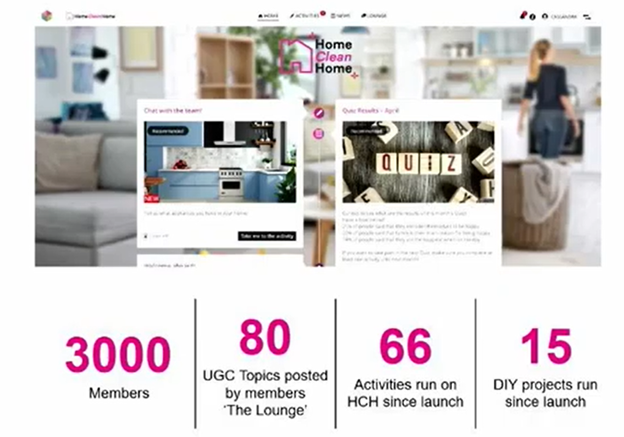 Fig II: Reckitt’s Consumer Community
Fig II: Reckitt’s Consumer Community
Lighthouse: Towards 2022
Lastly, Reckitt transformed their brand audit day into an exciting event branded as Lighthouse. By curating macro-trends from internal teams and external partners, Reckitt teams collectively launched into analysis to generate brand growth ideas. This is shared during an intensive week they called ‘Immersion.’
As such, this paved way for the live sessions involving global and local category strategy discussions, live consumer focus groups discussing ideas generated by employees during the Immersion, live Q & As with key retailers, and growth opportunity analysis. The fruit of all these were detailed action plans for 2022, developed by team leads and submitted to management for review.
 Fig III: Reckitt Benckiser Lighthouse 2022 Outline
Fig III: Reckitt Benckiser Lighthouse 2022 Outline
Finally, in June 2021, when the annual survey showed that 79% of employees felt connected to consumers. This meant a 21% increase in consumer closeness. Encouraged by this success, they are now exploring more consumer-centric activities like:
- Consumer Connects: involving physical Immersion into the reality of consumer lives (post-pandemic)
- Lighthouse 2023
- Home Clean Home 2.0: exploring new methodologies.
- End-to-End (E2E): to put consumers at integral business touchpoints.
- Consumer Closeness Best in Class: pioneering standard methods for consumer closeness in the U.K.
Well, you may ask, has this journey brought in returns for Reckitt? It isn’t a coincidence that after experiencing a shocking pandemic dip in 2020, there has been a 2.9% growth in the value of Reckitt Hygiene this year. If that isn’t a positive correlation, I don’t know what is.
Although the four-stream journey embarked on by Reckitt may not fit your business like a glove, you can always improvise, adapt their system to make your business more consumer-centric.
You can find Kerryn’s full presentations and all presentations on Qual360 in our Qual360 video library. Additionally, your next chances to join the Qual360 community live are at Qual360 North America (March 8&9, Washington D.C.), Qual360 Europe (April 5&6,Berlin) and Qual360 APAC (November 8&9, Singapore)!
Related articles:
Combining Technology and In-depth Qual to Improve OTT Experiences
The customer-driven playbook by Microsoft
Sign up to our Email alerts for news, updates and special offers!











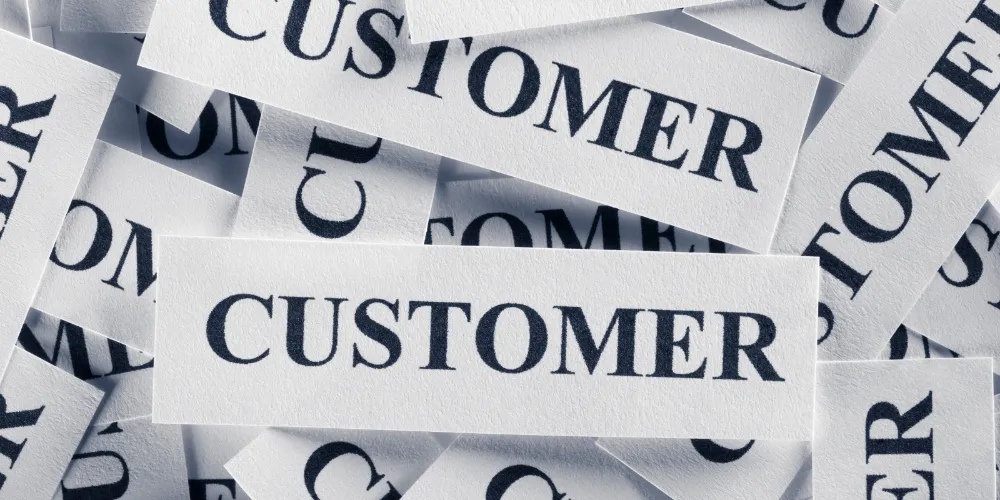
 by
by 